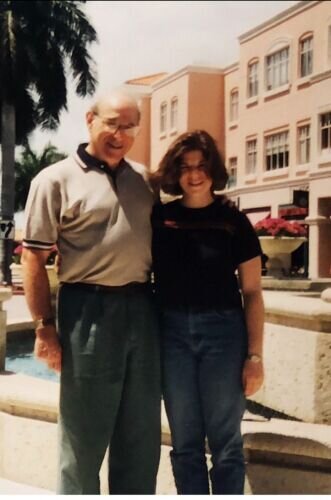Looking for something?
Archive
- Abortion 1
- Access to Care 1
- Ally 1
- Anniversaries 1
- Behavior 1
- Child grieve 1
- Children 2
- Children Grief 1
- Children's Grief Awareness Month 1
- College 3
- Coping 1
- Counseling 1
- Crisis 1
- Death 1
- Disenfranchised grief 1
- Eating disorder 1
- Exams 1
- Fathers Day 1
- Feelings 2
- Funerals 1
- Grief 27
- Grief activity 1
- Grief awareness 1
- Grief education 2
- Grief is Political 1
- Grief retreat 1
- Grief support 3
- Group rules 1
- Gun violence 1
- Healthcare 1
- Homelessness 1
- Imposter Syndrome 1
- Inner Harbor 1
- Intern 1
- LGBTQ 1
- Language 1
- Mass tragedy 1
- Mourning Meeting 1
- Pandemic 1
- Peer support 1
- Podcast 1
- Politics 1
- Post Traumatic Growth 1
- Professional Development 1
- Routines 1
- School shooting 1
- Schools 1
- Study skills 1
- Support 1
- Support groups 1

Students Need More Support in College
Overall, college drop out rates in 2021 reached 15%. And for many students, the reason for this is grief.

Who is Responsible for Student Mental Health?
I know how hard it is to squeeze in a ton of information on subject matter and make sure we are assessing student comprehension. Now we also have to make sure their mental health is OK? Is that too much to ask of professors?

Re-Entry is Hard
So many of us have been working on re-entering the world. We have been paying attention to our own comfort levels as we consider adding more activity and people into our lives. But a whole group of young people are experiencing another level of re-entry: returning home from college.

What Kids can Teach us about Grief
I met with a group of about 20 children ranging in age from 6 to 11. We hung out for a bit and then settled in to do an activity based on their worries. I gave them some art supplies and a little direction asking them to put their worries on paper. It could be about the pandemic or any other worries they had. Then they had a chance to share their worries with everyone else. And do you know what I found out? They have a lot of the same worries as I do!

The Kids are Not Alright
The news isn't good. It's also not surprising. Those of us in the youth mental health field have been seeing the struggles of teens and young adults since the pandemic began.

Support Mapping
Support mapping can be a very useful tool when thinking about your community. It creates a modifiable visual chart to identify support systems. If you are a high school senior, or work with them, a support map may be beneficial to use as you prepare for college. What are some of the supports and systems that could be beneficial for you as you enter into a new environment? If you are already in college, a support map can help you solidify some of the support you already have and help you to identify new ones that you may need.

The Myth of Time
We’ve all heard it before. Heck, many of us (myself included) have probably said it! Time heals all wounds. Maybe we’ve even come to believe it, perhaps because there is some truth to it.

Let’s Talk about Communi-Care
I challenge all of us to think about ways that we can care for each other and also consider how it may provide care for ourselves at the same time.

Holiday Wishes for Grievers
Holidays can be a particularly difficult time for those of us grieving because there is a lot of expectations for fun family gatherings and joyful celebrations. There is an unspoken rule…

Grieving While Final(ing)
Stuck right in between Thanksgiving and winter break, in just a few short weeks in the middle of the hustle and bustle of holidays, is the most difficult week or two of the semester. And for students who are grieving a loss, the holidays can be particularly stressful.

Why Am I Talking?
When someone is grieving, they often turn to friends and family to talk about their loss. Maybe someone important in their life died, or maybe a relationship ended. They have a lot of feelings and want to express them to a supportive friend.

Is a Grief Support Group Right for you?
Grief support groups are one way to find support after the death of an important person in your life. Some schools and universities offer them right on campus. There are others that are offered in communities and still others that you can find online. And while they aren't for everyone, and none are perfect, there are some real benefits to grief support groups.

How to Create Grief Programs and Activities
Grief is normal. It's supposed to happen. But expressing that grief can be difficult sometimes, so activities can help people process feelings, connect to others and memorialize the person that died.

How do students access support from professors and staff?
Emotional support is also a benefit of relationships with college staff, especially for first-generation college students and those who have or are experiencing stress that is impacting their schoolwork. These relationships are built over time when stable, trusting, sincere staff invest in students.

November is Children's Grief Awareness Month
One in 14 children will experience the death of a parent or sibling by the age of 18, which means that 5.3 million children are impacted by this significant loss. By the age of 25, that number more than doubles to 13.3 million. So the likelihood that you, or someone you know, has experienced the death of an immediate family member is very real.

COVID, Funerals and Closure
Throughout the whole pandemic, so many people have spoken about the inability to find closure because they were not able to have a funeral. I always agreed with the idea that "closure" is not really a thing; grief is lifelong and no ritual will bring an end to grief. But the part that struck me was the idea of funerals as an initiation, or even an invitation, to grieve.

Grief and Gratitude: Can we have both?
Grief is incredibly painful. There is no way around that. Death comes with a host of feelings that are often intense and unpleasant. But sometimes, and in some time, we may also experience some positive feelings that came from that very same death. It doesn't happen every time, and certainly not right away. But sometimes, good things do happen after a loss.

September is Suicide Awareness Month
I have spoken to so many people that have said they are scared to ask someone if they are considering suicide. Typically, they give two reasons for this fear. First, they don't want to put an idea in someone's head that may not already be there. And second, they don't know what to do if they get an affirmative response.

The Language of Suicide Loss
When it comes to suicide loss, many people don't have the words. First of all, there are no words. Nothing we say is the magical fix to bring the person back, change the circumstances of their death or make the grieving person feel better. But there are certainly words that can either make them feel supported and connected or words that can make them feel stigmatized, disenfranchised and misunderstood. And none of us want that. So let's start with a few things to avoid in suicide loss support.

Toxic Positivity: What is it and How can we Make it go Away?
Do you know someone who lives by the motto "Positive Vibes Only?" They are always cheery, always looking on the bright side. They are the life of the party and nothing seems to get them down. You may even think you want to be like them sometimes. Truth be told, I wish I could be like that.
